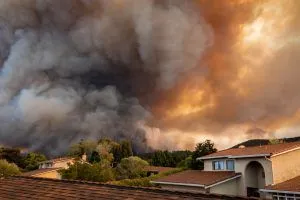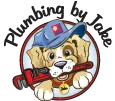
Wildfires are increasing in number and intensity across the west. While Arizona and Nevada are in less direct danger from fire, they’re still vulnerable to smoke blown in from California. How do you protect you and your home from this dangerous smoke?
Don’t think you’ll be fine just breathing it in. Smoke can make your home smell awful, and it’s dangerous to humans and pets. People with lung and heart conditions can get really sick or even die from smoke exposure. Ambient Edge recommends these steps to protect your home and health.
Get a Portable Air Cleaner
If wildfire smoke is coming your way, especially if it’s thick, choose a room to stay in and get a portable air cleaner for that room. These systems can pull harmful particulates out of the air if they get into your home. Make sure it’s sized appropriately and know what filters it needs in case the smoke lingers for months.
Portable air cleaners are rated on clean air delivery rate. Estimate the size of the room you’ll stay in while the smoke passes and choose an air cleaner that works for you.
Use a MERV 13 Filter
If your HVAC system can support one, use a MERV 13 or higher-rated filter for wildfire season. MERV ratings measure how much a filter can remove very fine particles just mere microns in size. MERV 13 filters filter down to particle 0.3 to 1 micron in size.
By using one, your HVAC system can capture much of the smoke that enters your home. However, your system may not support this kind of filter. Check with a residential HVAC technician before installing one or you could put strain on your system.
Seal Your Home
If there’s active smoke in your area, take the obvious step and seal all of your doors and windows tight, and limit going in and out of your home. Place damp towels in front of the bottom of your exterior doors to help with air leaks. If you have enough towels, do the same with your windows.
Also, if you have a fresh air intake setting on your HVAC system, turn it off! Keep air circulating inside the home so you don’t draw in smoke from outside and your filters can work efficiently. Also, close the flue if you have a fireplace.
Turn Off Evaporative Coolers
Do you use an evaporative cooler, also called a swamp cooler? You’ll need to turn it off completely. These systems work by pulling in outside air. Unfortunately, in our environment, this could make your home too dangerous to stay in. If you have an evaporative cooler, consider getting it replaced to avoid an unnecessary evacuation.
Consider Wearing a Mask or Respirator
If you’re already using N95 masks for COVID-19 protection, you can use the same masks to help protect your lungs if smoke gets in your house. The mask needs to be well-fitted for this to work. You can also use a P100 mask or a similar particulate respirator.
Avoid using common dusk masks or cloth masks. Smoke particles can slip through those and damage your lungs. If you must go out into the smoke and don’t have a proper mask, use a damp cloth. The water makes the holes between the fibers smaller so it catches more smoke particulates.
Use TSP Products to Clean Smoke Smell
Once the smoke is gone, the wildfire smell can remain behind in your house. Cleaning products with trisodium phosphate can cut through the odor, but this is a powerful cleaning chemical. Be sure to read the instructions carefully. It’s corrosive to some surfaces.
Use these tips to protect your home and your health from wildfire smoke. When the fire is over, be careful of any remaining ash. Ash is just large particles of smoke. Beware of tracking it into your home. It can harm your health and it’s difficult to clean out of the carpet.



